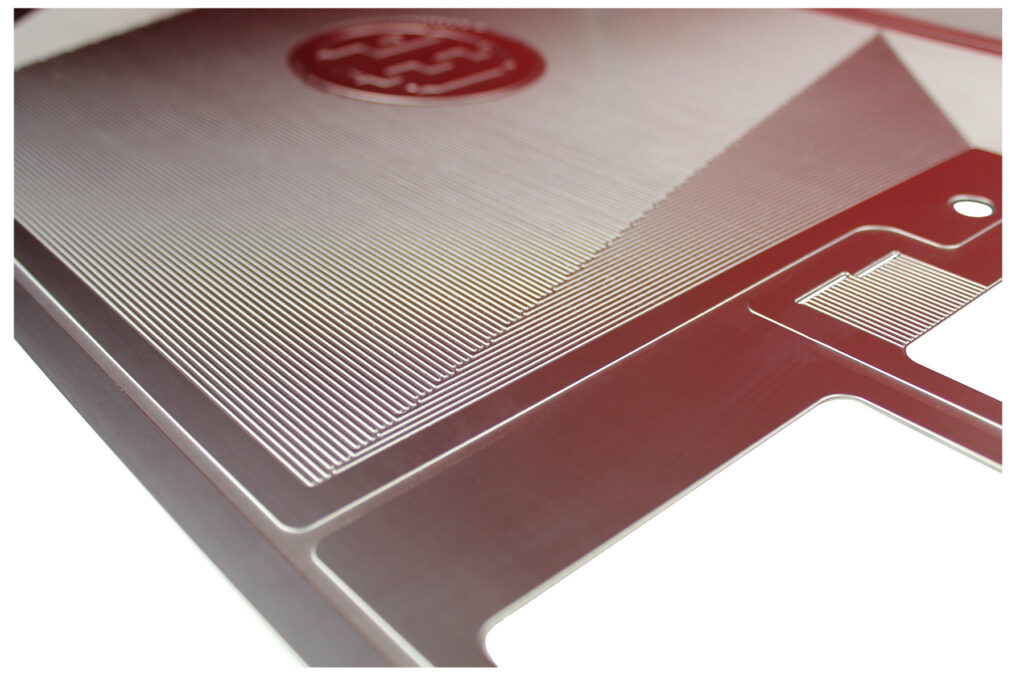To-date, more than 140 countries have announced or are considering net-zero targets, which covers nearly 90% of global emissions. This call to meet clean energy goals requires combined global forces and new technologies. Advanced manufacturers will play a key role in reaching net-zero goals as more organizations look for ways to advance these protocols.
The Partner Companies (TPC), the leading photochemical etcher in North America, is one advanced manufacturer leading this effort. PEI, one of TPC’s leading engineering and manufacturing centers located in Milford, MA, manufactures precision-etched metal parts and assemblies for novel energy solutions (in addition to medical, microelectronics and defense applications). PEI is driving the development of a low-carbon process to generate sustainable fuels and plastics through its expertise in photochemical etching.
Supporting the Clean Energy Industry
PEI uses photochemical etching to produce the hundreds of essential thin metal parts and components in solar panels, wind turbines and energy generation and storage systems. Photochemical etching is an efficient, cost-effective manufacturing process that creates highly accurate parts with complex patterns and tight tolerances, ideal for clean energy initiatives.
Most recently, PEI partnered with a prominent company committed to advancing clean energy solutions to support a technology that generates sustainable fuels and plastics, which can be used to decarbonize various industries. As part of this process, PEI is developing a bipolar electrolyzer plate, a key component in fuel cells and electrolyzers that uses electricity to produce chemical reactions to generate a fuel output. The bipolar electrolyzer plate plays a crucial role, as it enables electrolyzers to generate fuel to power vehicles, homes and industries without emitting carbon dioxide. This partnership will drastically reduce carbon emissions in comparison to traditional modes of production, resulting in a product with near zero or negative CO2 emissions.
Given the increased pressure to reach net-zero goals, the clean energy industry is a competitive landscape, and sustainable fuels and plastics often struggle at the production scale due to high costs. PEI’s use of photochemical etching in conjunction with the implementation of direct imaging technology allows for the quick scaling and continuous process improvement of bipolar plates, which impact the electrolyzer’s total production output levels and aggressive cost targets. In working with PEI, this particular solution has already met crucial milestones with short production runs and received key certifications from government bodies.
Titanium Strength
PEI is the world’s leader in the photochemical etching of titanium, giving all TPC’s customers across its companies access to this expertise. Titanium is one of the world’s most important metals, used as the basis for environment-conserving renewable energy projects and a key component for electrolyzer development. This material is best suited for highly specialized products and comes with many unique advantages in the electrolyzer’s production. PEI uses Grade 2 Titanium, in conjunction with various other plastics and proprietary materials used in the electrolysis system.
Some of the benefits of using titanium include:
- High Strength-to-Weight Ratio – Titanium’s lightweight and high strength-to-weight ratio makes it ideal for parts and components where weight reduction is desirable, but strength is essential.
- Corrosion Resistance – Non-corrosive metals like titanium are ideal for use in challenging environments and can withstand exposure to aggressive substances, such as high-temperature fluids, chemicals and saltwater, without significant degradation.
- Heat Resistance – Titanium can withstand high temperatures without deformation or degradation, making it perfect for applications involving extreme heat.
PEI as a Preferred Partner
Using traditional titanium machining technology without etching comes with challenges as it can take much longer to prototype and manufacture components. Because of its qualified, photochemical etching capabilities, PEI can both scale and pivot production based on evolutions in design quickly and at a fair cost. PEI also leverages its specialty, state-of-the-art engineering capabilities and customer service-centric approach to deliver customizable, quality results while maintaining all customer project milestones.
With the support of TPC, PEI continues to partner with its customers on the next generation of designs to support clean energy applications and achieve a more sustainable future. Through every partnership, PEI maintains the same level of collaboration and commitment to meet the customer’s end goals and further distinguish TPC as a leading advanced manufacturing firm.
TPC is the largest etching company in North America, with locations nationwide along with other capabilities including silicon/germanium growth, brazed metal and ceramic assemblies, electroforming, precision machining, complex assembly, and more. TPC operates with a promise of innovation, impeccable quality and attention to customer satisfaction to generate custom solutions to serve companies across the energy industry.
To learn more about partnership opportunities for PEI’s photochemical etching capabilities, visit photofabrication.com.

